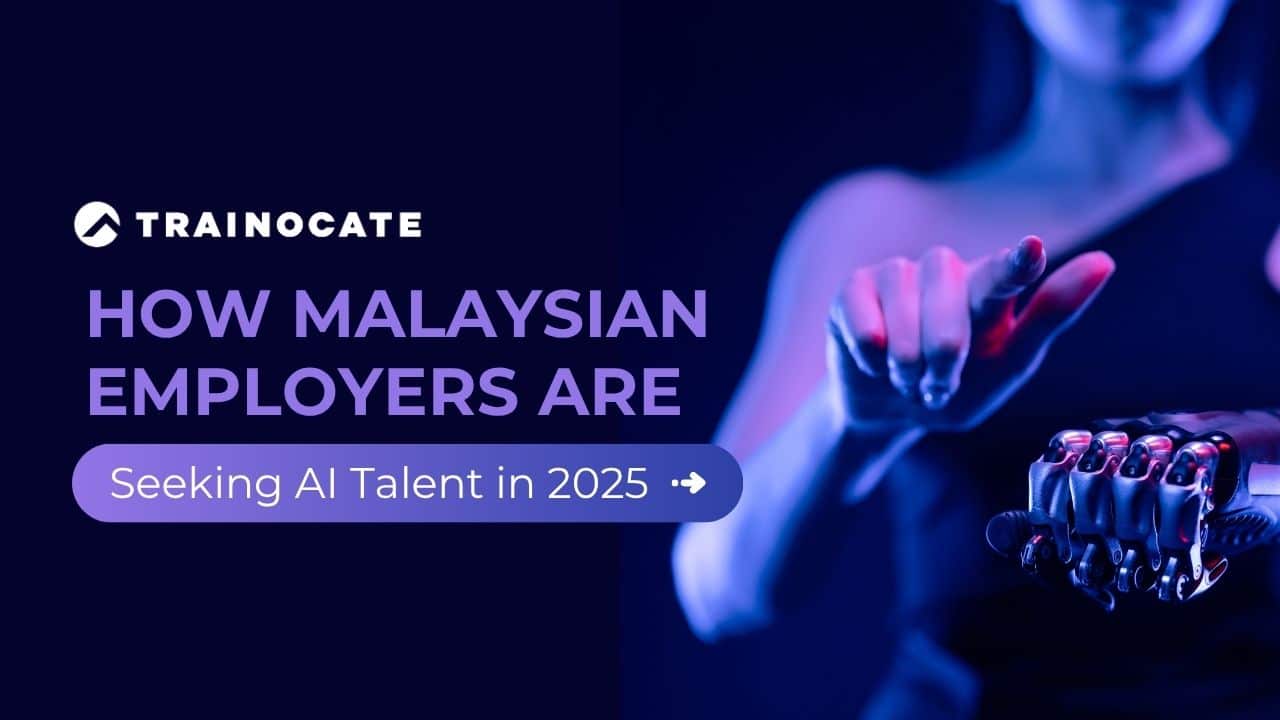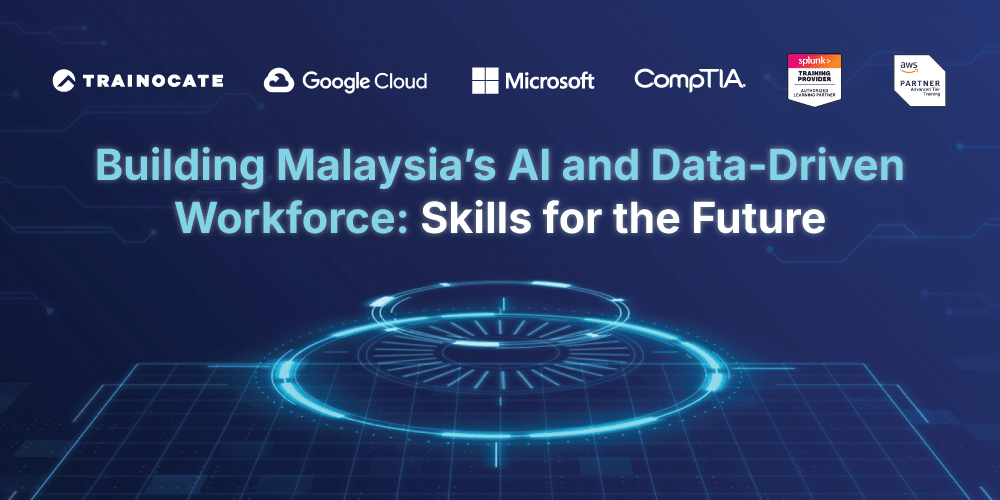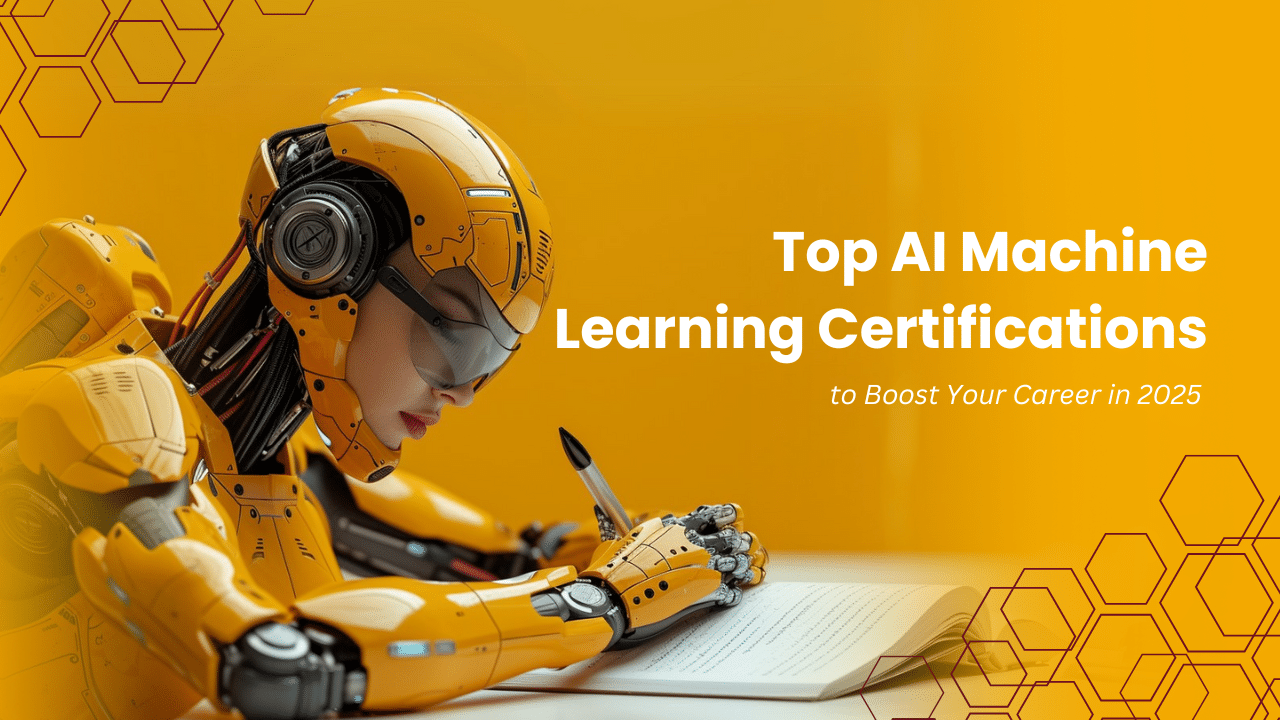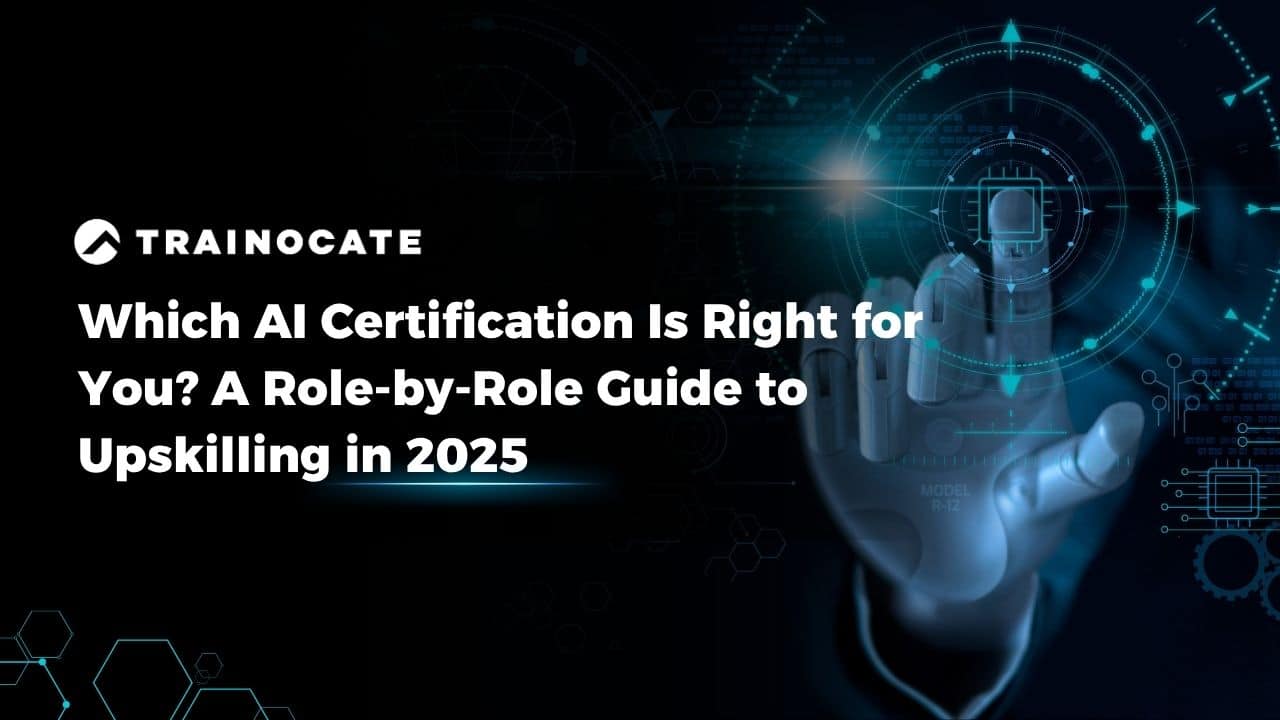How Malaysian Employers Are Seeking AI Talent in 2025
How Malaysian Employers Are Seeking AI Talent in 2025
Malaysia is racing to become Southeast Asia’s digital-economy powerhouse, with MyDIGITAL aiming a 22.6 % contribution of digital to GDP and 500,000 new jobs in 2025. The Blueprint also calls for 100 % of civil servants to be digitally literate and 80 % of end-to-end government services to move online (MDEB).
At the same time, global tech leaders are backing this push:
- AWS has committed RM 29.2 billion to its new Asia Pacific (Malaysia) Region
- Microsoft is investing $2.2 billion in cloud and AI infrastructure
- Google plans RM 9.4 billion for its first data centre and Cloud region here
In this blog, we’ll map the five AI competencies Malaysian employers prize most—and show how Trainocate Malaysia empowers both the Cloud and AI workforce.
However, our research also found that 34% of Malaysians have never used AI at work. Without early exposure to AI, the current workforce may not be adequately equipped or confident enough to meet different expectations in the future. A report indicated that 70% of new job openings in 2024 will require digital skills, yet only 30% of the current workforce is equipped with these competencies (Randstad Salary Guide).
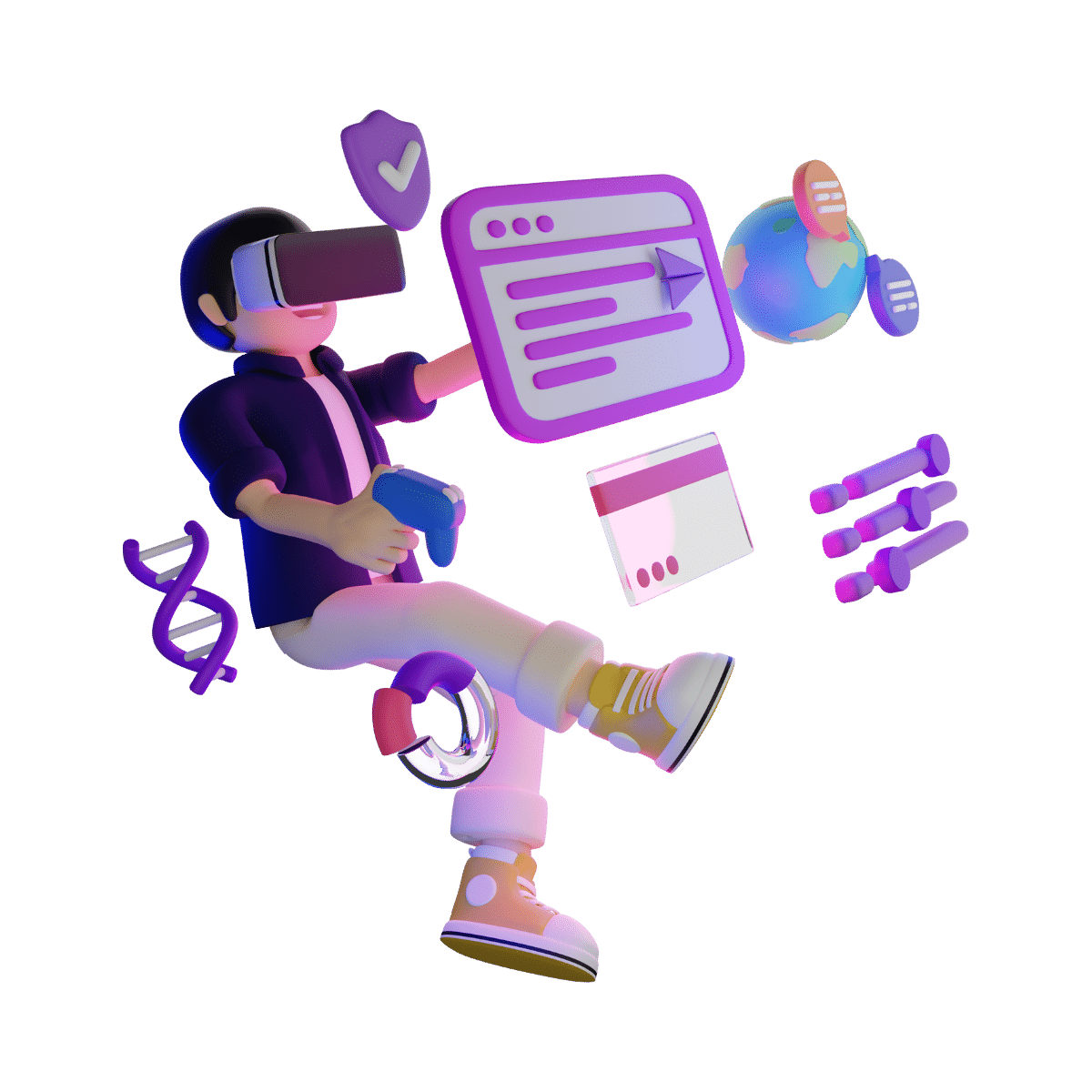

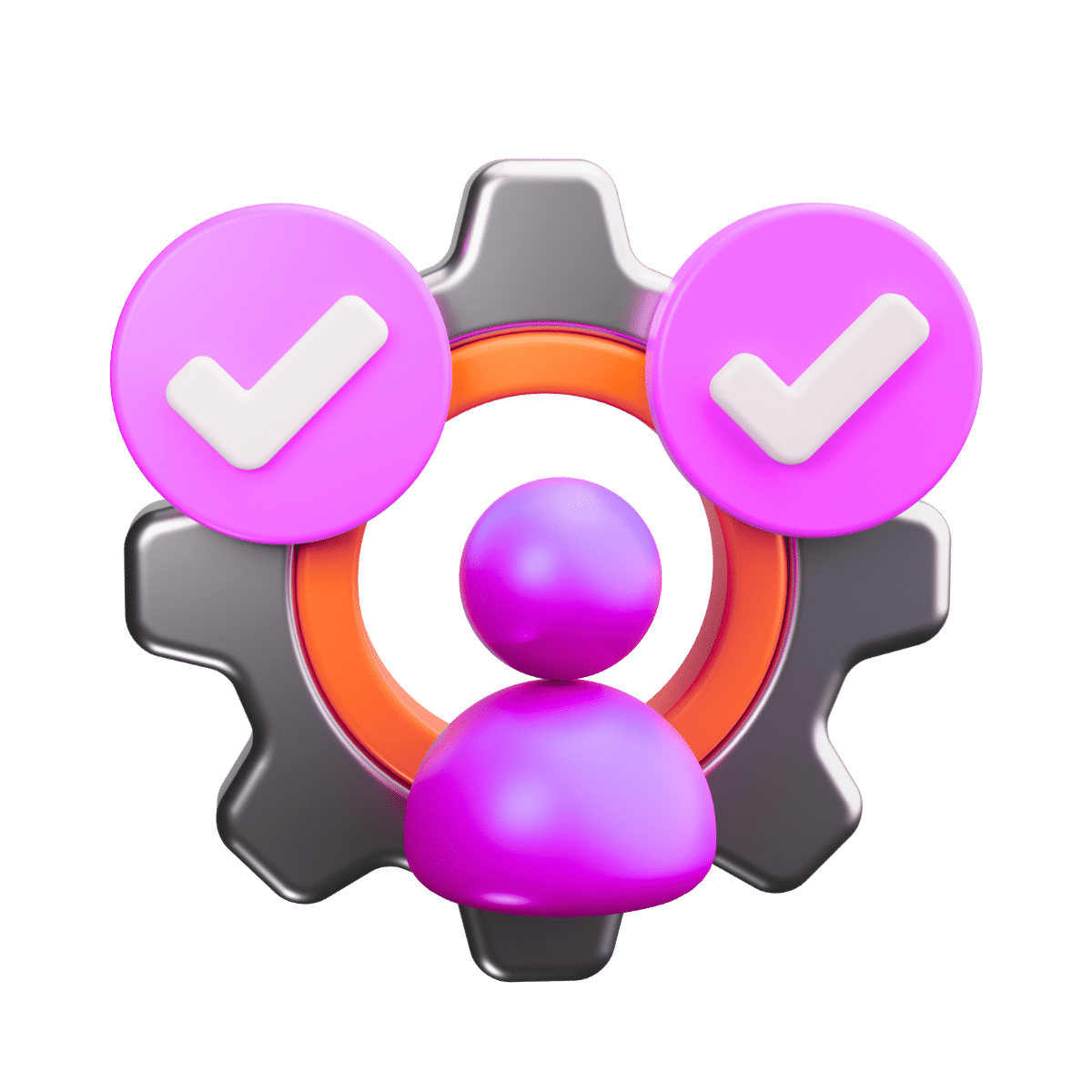


Below are the main MyDIGITAL Blueprint initiatives focused on building agile, competent digital talent:

1. Digital Skills into School Curricula
- Introduce the “My Device” programme” to ensure every student has access to a digital device, supported by data plans and secure settings.
- Provide special digital connectivity packages so all primary and secondary schools have reliable internet.
- Expand the Digital Educational Learning Initiative Malaysia (DELIMa) to embed interactive digital tools into teaching and boost STEM education.

2. Reskilling the Current Workforce
- Launch targeted upskilling programmes—via universities, online masterclasses, or corporate training—with tax incentives to develop competencies in areas like data analytics, AI, cybersecurity, and system integration.
- Promote global certifications (e.g., ACE for cybersecurity) and allow HRDF-subsidised courses on platforms such as Coursera, Udemy, and Codeacademy.

3. Shifting Vocational & Tertiary Education toward Adaptable Competencies
- Reorient TVET and degree programmes from narrow, job-specific skills toward broader digital adaptability, ensuring graduates can tackle emerging roles.
- Equip 2,500 “My Digital Maker Champion Schools” by 2030, transforming students into digital creators through industry-backed projects and competitions.

4. Developing Professional Digital Talent
- Target creation of 30,000 data professionals and 20,000 cybersecurity experts, with senior-management digital-skills programmes delivered in partnership with MOHR and industry players.
- Achieve 50 % participation of senior management from GLCs, MNCs, and MSMEs in upskilling schemes.

5. Centralising Upskilling Access via MYFutureJobs
- Aggregate all public upskilling and reskilling initiatives onto the MYFutureJobs portal, providing a single point of reference for employers and employees by 2030.
- Streamline training listings to optimise resources and match learners with relevant courses.
This centralised hub addresses the friction often faced by organisations seeking to develop in-house expertise by streamlining access to digital skills programmes, ranging from data analytics to AI fundamentals.
These public-sector imperatives—and the structural support built around them—translate directly into concrete demand for professionals skilled in data wrangling, prompt engineering, and model deployment.
Employers across Malaysia are increasingly seeking professionals who can efficiently clean, wrangle, and visualize large datasets to drive business insights.
| Contract | Permanent |
|---|---|
| Business Analyst | Project Manager |
| Project Manager | Data Analyst |
| Data Analyst | Business Analyst |
| Data Engineer | Data Engineer |
| Change Manager | Java Developer |
| Solution Architect | DevOps Engineer |
| Scrum Master | Software Developer |
| Network Engineer | Network Engineer |
| NET Developer | Solution Architect |
| Java Developer | Data Scientist |
Source: Hays’ Future of Work 2025 report
Organizations throughout Malaysia are under pressure to turn vast data volumes into strategic insights. As budgets tighten and productivity becomes paramount, there’s a surge in demand for professionals who can extract meaningful narratives from raw numbers.
According to Hays’ Future of Work 2025 report, businesses increasingly rely on data to inform high-stakes decisions—machine-generated analyses may provide up to 80% of the answer, but it takes skilled talent to refine and contextualize these outputs. Many companies are now undertaking intensive, fixed-term “data-cleaning” projects to elevate data quality, driving resilient demand for contract and temporary specialists even as permanent roles see a modest decline.
Meanwhile, Malaysia’s rapid expansion of data-centre infrastructure—spurred by spill-over from Singapore—signals future hiring surges in cloud and analytics roles.
Although most new facilities remain in construction until at least 2027, the sector has already encountered talent shortages tied to location: while Kuala Lumpur is a natural draw, Johor Bahru’s emerging hub status poses relocation challenges. In the near term, professional recruiters are helping bridge these gaps by sourcing candidates willing to make the move (Randstad Salary Guide 2025).
To meet these evolving needs, Trainocate offers end-to-end training pathways—from foundational courses such as CompTIA Data+ and Microsoft DP-900: Azure Data Fundamentals to advanced certifications in Splunk Core Certified Advanced Power User and Google Cloud Professional Data Engineer.
Key advantages of AI utility in workplaces.
According to the WEF 2025 report, generative AI has seen a near eight-fold increase in investment since late 2022, and 86 % of executives expect AI and information-processing technologies to transform their businesses by 2030, underscoring a growing need for workforce upskilling in AI capabilities.
The Problem: Not Enough Cloud Talent
Even with billions being invested, companies still struggle to hire skilled cloud professionals.
| Role | Junior (RM) | Middle (RM) | Senior (RM) |
|---|---|---|---|
| Data analyst/business intelligence | 5,000 | 10,000 | 17,000 |
| Data scientist | 6,000 | 15,000 | 25,000 |
| Data engineer | 6,000 | 15,000 | 25,000 |
| Data architect | 18,000 | 26,000 | 35,000 |
| Head of Data | 20,000 | 30,000 | 40,000 |
| Chief Data Officer | 40,000 | 50,000 | 60,000 |
| Artificial Intelligence & Machine Learning | 6,500 | 15,000 | 25,000 |
Petronas’ AI-Powered Energy Revolution
Petronas has integrated advanced AI and machine-learning workflows into its myPROdata platform to sharpen exploration in the mature Malay Basin. In November 2024, Malaysia Petroleum Management (MPM) teamed up with Earth Science Analytics (ESA) and Amazon Web Services (AWS) to embed ESA’s EarthNET geoscience tools alongside AWS’s cloud-native AI/ML services. This collaboration enhances subsurface data analytics—automating everything from well-log harmonization to seismic property prediction—and gives potential investors richer, on-demand insights directly within the myPROdata portal (Petronas Global).
By streamlining data ingestion and interpretation, Petronas is accelerating decision cycles and enabling more precise identification of high value drilling targets, demonstrating the real-world impact of ML tools on Malaysia’s energy sector.
To capitalize on Malaysia’s AI momentum, stakeholders must act now. With Randstad reporting that 56% of employers face skill shortages and 34% of workers lack AI exposure, bridging this gap requires proactive strategies.
Employers should invest in internal AI academies to increase existing talent while forging public-private partnerships to align training with industry needs. Additionally, mapping roles to structured certification pathways—such as those in AI governance, machine learning, and data analytics—will ensure professionals acquire relevant, future-proof competencies.
Seizing Malaysia’s AI Momentum
Malaysia’s ambitious MyDIGITAL initiative underscores the nation’s commitment to becoming a regional digital powerhouse, with AI and data-driven skills at the forefront of this transformation. As global tech giants like AWS, Microsoft, and Google invest heavily in Malaysia’s digital infrastructure, the demand for skilled professionals in data analytics, AI, and machine learning is surging.
Targeting upskilling through certifications (e.g., AWS, Microsoft, CompTIA) and public-private partnerships is critical to bridge this gap. Employers must prioritize training programs, while professionals should seize opportunities to acquire in-demand skills like prompt engineering, data wrangling, and AI governance. From Petronas’ AI-driven energy exploration to HR’s digital transformation, Malaysia’s future hinges on a workforce adept at leveraging technology for innovation and efficiency.
By aligning with initiatives like Trainocate’s AI & Data-Driven Workforce campaign, stakeholders can accelerate growth, meet MyDIGITAL’s targets, and secure Malaysia’s position as a leader in the digital economy.
The time to act is now—upskill, adapt, and thrive in this AI-powered era.


